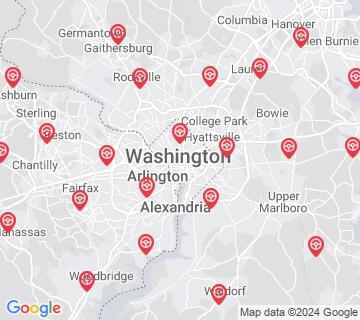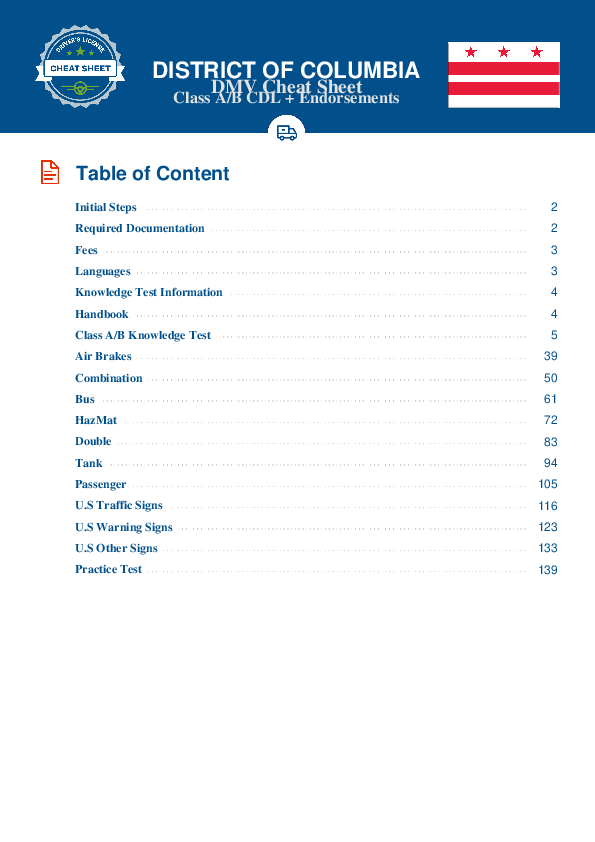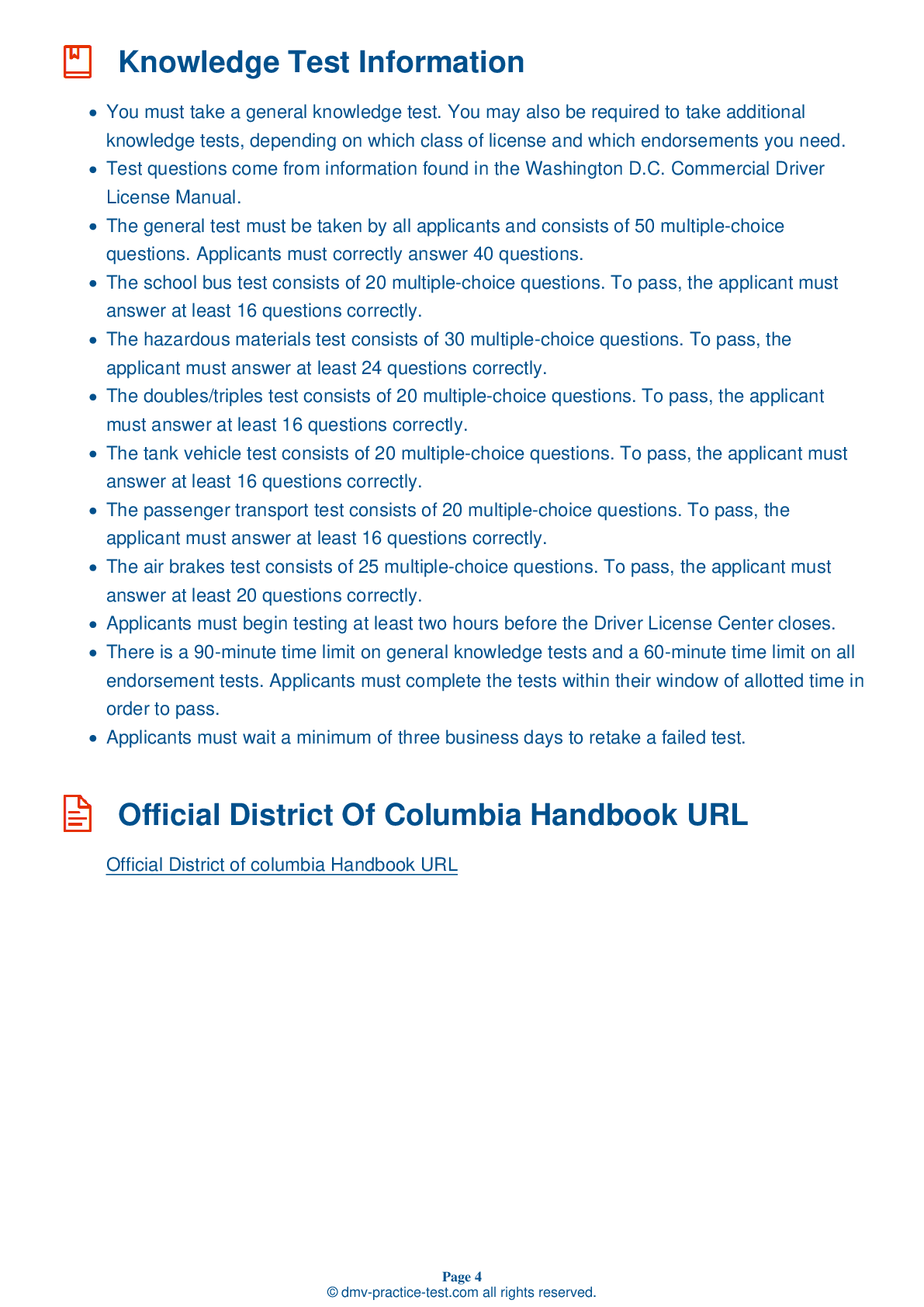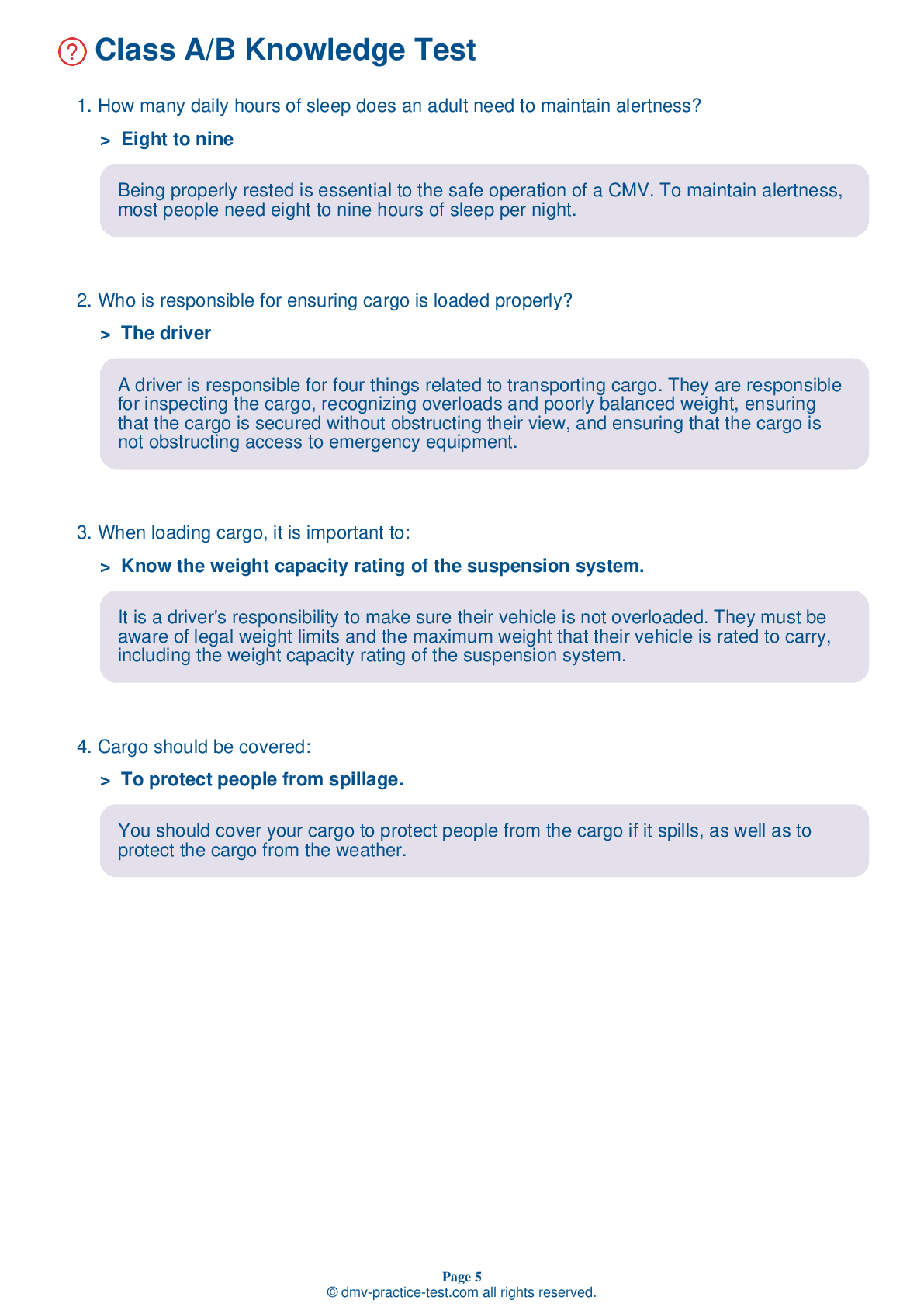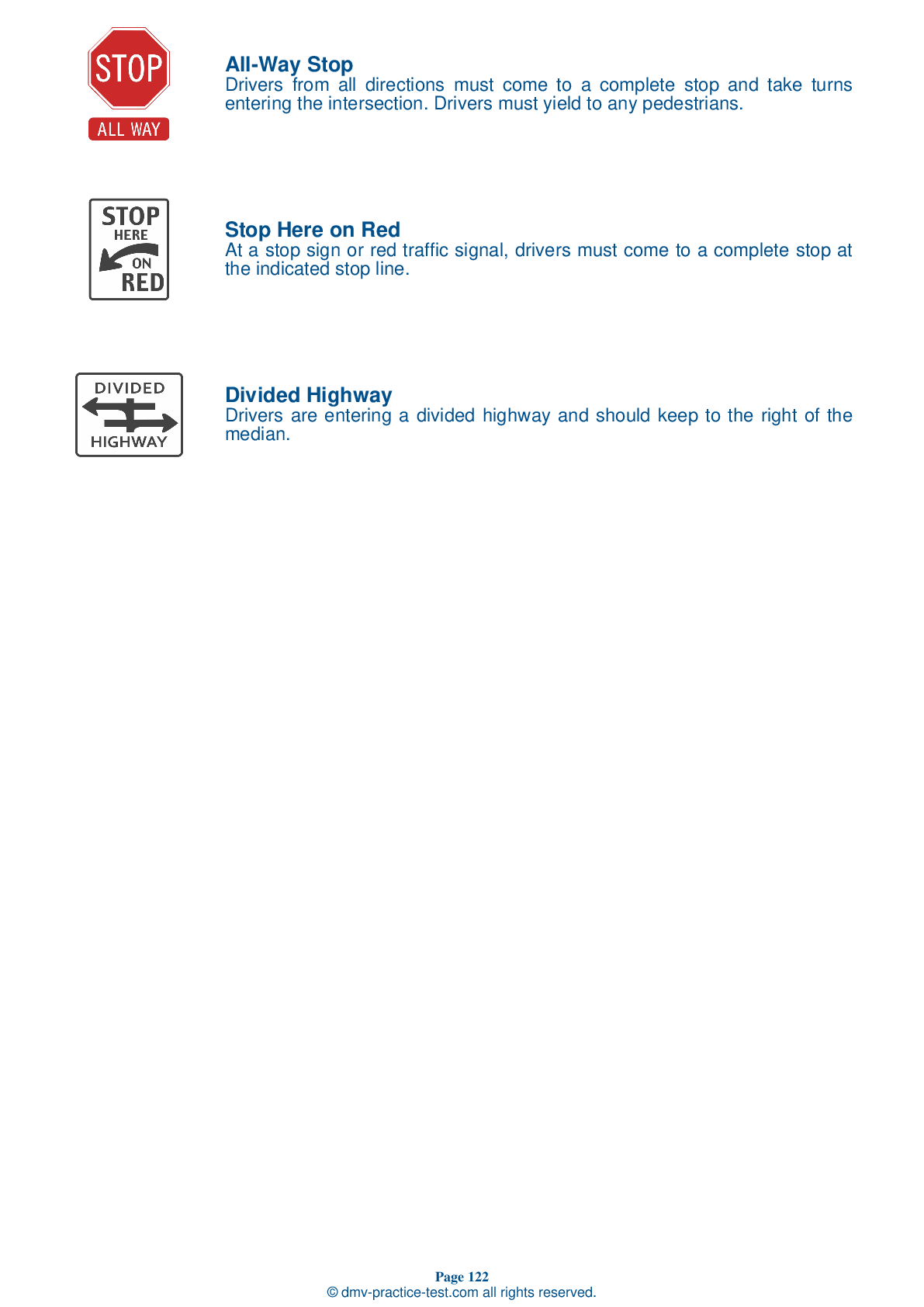Double #1
Double Triple Test | District Of Columbia 2026 #1 Page 3 of 3
Train for FREE with our District Of Columbia CDL double triple practice test online. The official exam test consists of several obligatory parts, with all of them checking your knowledge of different blocks of road rules. If you need to obtain a DC CDL double triple license in 2026, practice as much as possible. Free sample tests published on our website will help you check and improve your knowledge and boost your grades. Please bear in mind that DMV requirements may vary from state to state.
20
16
20
15 . A convex mirror is sometimes called a ____ mirror.
Large vehicles often have curved, convex mirrors, sometimes referred to as "fisheye," "spot," or "bug-eye" mirrors. These mirrors provide a wider view than flat mirrors. However, they also make objects seem smaller and farther away than they actually are.
16 . Brakes can get out of adjustment:
If brakes on one side are used more often than brakes on the other side.
Brakes are particularly prone to getting out out adjustment if they are hot. Use proper braking techniques to avoid letting your brakes overheat.
17 . In the event of an engine fire, you should not:
Spray from the underside of the vehicle.
In the event of an engine fire, you should turn off the engine as soon as possible. Do not open the hood if you can avoid it. Shoot foam through the louvers or from the vehicle’s underside.
18 . What must be on an air tank in an air-braked vehicle?
An oxidizer
All air tanks on air-braked vehicles must have one-way check valves located between the air compressor and the first reservoir. This prevents air from flowing out in the event of a leak.
19 . When only the tractor is equipped with an Anti-Lock Braking System (ABS):
The brakes will become more sensitive.
If a tractor is equipped with an Anti-Lock Braking System (ABS) but the trailer is not, the risk of jackknifing will be reduced and the driver should still be able to maintain steering control. If only the trailer is equipped with ABS, it is less likely that the trailer will swing out to one side.
20 . The two indicators that determine when you should upshift are:
Oil pressure and air brake pressure.
There are two indicators that determine when you need to shift into a higher gear. One indicator is the engine speed (rpm). You should read your vehicle's manual to learn its rpm range and shift up when you reach the top of that range. The other indicator is road speed (mph). You should learn which speeds each gear can accommodate, then keep an eye on the speedometer and shift up as needed.
Search the best driving school in your neighbourhood
2026 District Of Columbia | Frequently Asked Questions
In the District of Columbia, a CDL Class A license allows the holder to operate any combination of vehicles with a Gross Combination Weight Rating (GCWR) of 26,001 pounds or more, provided the Gross Vehicle Weight Rating (GVWR) of the vehicle(s) being towed is over 10,000 pounds. This includes tractor-trailers, truck and trailer combinations, and flatbeds.
A Class A CDL license in the District of Columbia permits the holder to operate various types of larger, heavier commercial vehicles. This includes tractor-trailers, truck and trailer combinations, tank vehicles, livestock carriers, and flatbeds. The vehicles can have a Gross Combination Weight Rating (GCWR) of 26,001 pounds or more if the towed vehicle is over 10,000 pounds.
To obtain a Class A CDL license in the District of Columbia, you must be at least 21 years old, possess a valid non-commercial driver's license, pass a vision test, and provide proof of residency and identity. You'll also need to pass written knowledge tests, obtain a Commercial Learner's Permit (CLP), and successfully complete a skills and road test.
In the District of Columbia, you must be at least 21 years old to qualify for a Class A Commercial Driver's License (CDL). This age requirement is consistent across all states and is set by federal regulation. This allows for interstate operation of commercial vehicles. For intrastate (within the same state), the minimum age can be 18.
Specific endorsements are not required for a Class A CDL license but they can provide additional driving privileges. These include endorsements for operating vehicles like school buses, passenger vehicles, tank vehicles, and vehicles carrying hazardous materials. Each endorsement requires passing specific knowledge and skills tests.
The Class A CDL skills test in the District of Columbia consists of three parts: the vehicle inspection test, the basic control skills test, and the road test. The vehicle inspection test involves checking the vehicle's safety components, the basic control skills test assesses your ability to maneuver and control the vehicle, and the road test evaluates your on-road driving skills.
Yes, limitations can be imposed on Class A CDL license holders in the form of restrictions. These are based on the driver's abilities or the type of vehicle they tested in. For example, if a driver takes the skills test in an automatic transmission truck, they will have an 'E' restriction, limiting them to automatic transmission vehicles only.
Yes, it is possible to take the written Class A CDL test in languages other than English in the District of Columbia. However, the Federal Motor Carrier Safety Administration requires all CDL holders to read and speak English sufficiently to converse with the general public, understand highway traffic signs and signals, respond to official inquiries and make entries on reports and records.
Yes, you can request accommodations for the Class A CDL written test in the District of Columbia due to disability. The DMV is committed to providing accessible services and accommodations to individuals with disabilities. You should contact the DMV directly in advance of your test to discuss your needs and the potential accommodations available.
If you don't pass the Class A CDL written test in the District of Columbia, you are allowed to retake it. However, you must wait three days before retaking the test. If you fail the test three times, you must wait 90 days before taking it again. There's also a retesting fee that applies each time.
